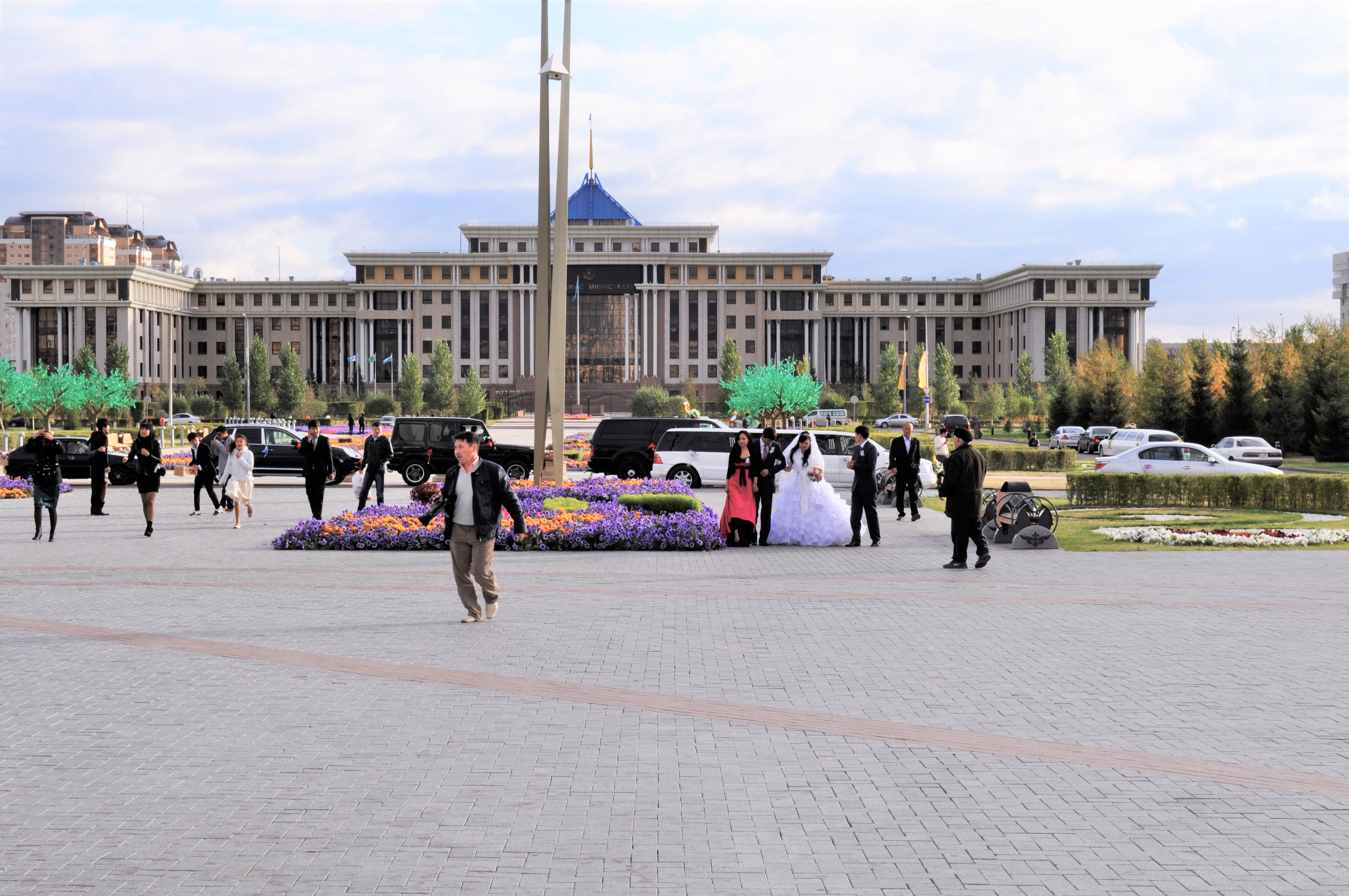|
Yéro Boly
Yéro Boly (born 31 December 1954) is a Burkinabé politician and diplomat. He served as Burkina Faso's Minister of Territorial Administration and Security from 1995 to 2000 and was Director of the Cabinet of the President from 2000 to 2004. Subsequently, he was Minister of Defense from 2004 to 2011 and Ambassador to Morocco from 2012 to 2015. Early life Boly was born in Komki-Ipala, located in Kadiogo Province. He attended the National School of Administration and was then a sub-prefect from 1978 to 1980. He again attended the National School of Administration from 1980 to 1983, studying to become a civil administrator. Politics After holding administrative roles from 1984 to 1986, he was Ambassador to Côte d'Ivoire from 1986 to 1988, then Ambassador to Libya Libya, officially the State of Libya, is a country in the Maghreb region of North Africa. It borders the Mediterranean Sea to the north, Egypt to Egypt–Libya border, the east, Sudan to Libya–Sudan border, ... [...More Info...] [...Related Items...] OR: [Wikipedia] [Google] [Baidu] |
Minister Of Defence (Burkina Faso)
A ministry of defence or defense (see spelling differences), also known as a department of defence or defense, is the part of a government responsible for matters of defence and military forces, found in states where the government is divided into ministries or departments. Such a department usually includes all branches of the military, and is usually controlled by a defence minister or secretary of defense. The role of a defence minister varies considerably from country to country; in some the minister is only in charge of general budget matters and procurement of equipment, while in others they are also an integral part of the operational military chain of command. Historically, such departments were referred to as a ministry of war or department of war, although they generally had authority only over the army of a country, with a separate department governing other military branches. Prior to World War II, most "ministries of war" were army ministries, while the navy ... [...More Info...] [...Related Items...] OR: [Wikipedia] [Google] [Baidu] |
Ordre National Du Mérite
The (; ) is a French order of merit with membership awarded by the President of the French Republic, founded on 3 December 1963 by President Charles de Gaulle. The reason for the order's establishment was twofold: to replace the large number of ministerial orders previously awarded by the ministries; and to create an award that can be awarded at a lower level than the Legion of Honour, which is generally reserved for French citizens. It comprises about 185,000 members; 306,000 members have been admitted or promoted in 50 years. History The comprises about 185,000 members; 306,000 members have been admitted or promoted in 50 years. Half of its recipients are required to be women. Defunct ministerial orders The replaced the following ministerial and colonial orders: Colonial orders * (Order of the Star of Anjouan, 1874) * (Order of Nishan-e-Anuar or Order of Light, 1887) * (Order of the Black Star, 1889) Special ministerial orders of merit * (Order of Societal Me ... [...More Info...] [...Related Items...] OR: [Wikipedia] [Google] [Baidu] |
People From Centre Region (Burkina Faso)
The term "the people" refers to the public or common mass of people of a polity. As such it is a concept of human rights law, international law as well as constitutional law, particularly used for claims of popular sovereignty. In contrast, a people is any plurality of persons considered as a whole. Used in politics and law, the term "a people" refers to the collective or community of an ethnic group or nation. Concepts Legal Chapter One, Article One of the Charter of the United Nations states that "peoples" have the right to self-determination. Though the mere status as peoples and the right to self-determination, as for example in the case of Indigenous peoples (''peoples'', as in all groups of indigenous people, not merely all indigenous persons as in ''indigenous people''), does not automatically provide for independent sovereignty and therefore secession. Indeed, judge Ivor Jennings identified the inherent problems in the right of "peoples" to self-determination, as i ... [...More Info...] [...Related Items...] OR: [Wikipedia] [Google] [Baidu] |
Ambassadors Of Burkina Faso To Morocco
An ambassador is an official envoy, especially a high-ranking diplomat who represents a state and is usually accredited to another sovereign state or to an international organization as the resident representative of their own government or sovereign or appointed for a special and often temporary diplomatic assignment. The word is also used informally for people who are known, without national appointment, to represent certain professions, activities, and fields of endeavor, such as sales. An ambassador is the ranking government representative stationed in a foreign capital or country. The host country typically allows the ambassador control of specific territory called an embassy (which may include an official residence and an office, chancery, located together or separately, generally in the host nation's capital), whose territory, staff, and vehicles are generally afforded diplomatic immunity in the host country. Under the Vienna Convention on Diplomatic Relations, an ambass ... [...More Info...] [...Related Items...] OR: [Wikipedia] [Google] [Baidu] |

